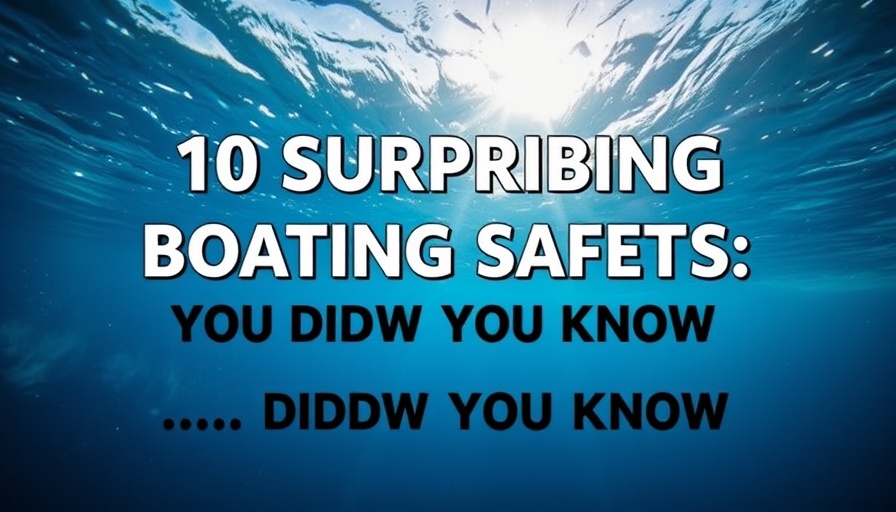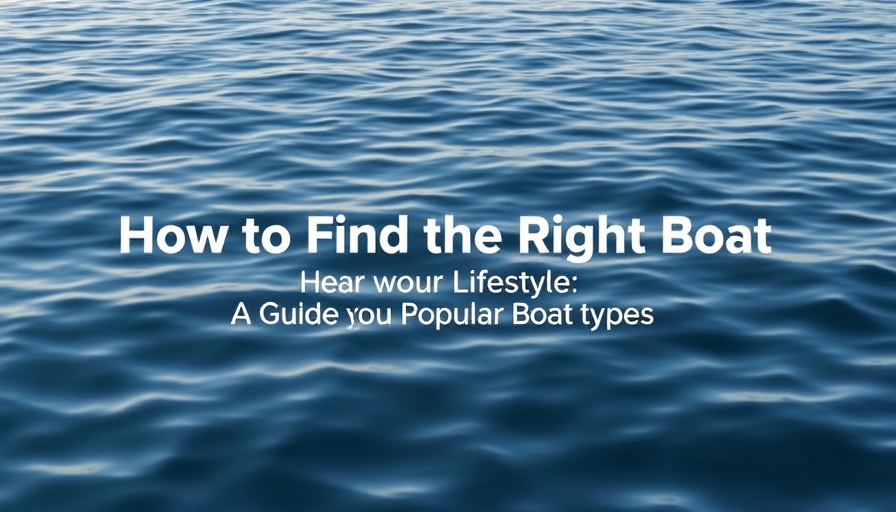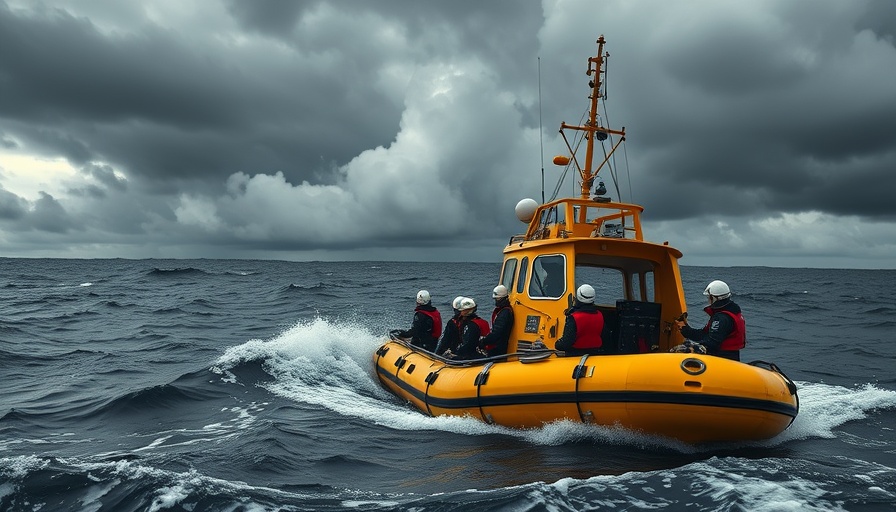
Unveiling the Unexpected: Boating Safety Surprises
When it comes to enjoying the open waters, safety should always be top of mind. Yet, many boaters are unaware of the remarkable, sometimes shocking, facts that can enhance their experience and enhance their safety on the water. Here, we delve into ten surprising boating safety facts that make navigating our lakes and oceans not only enjoyable but also safer.
The Importance of Life Jackets
Many people dismiss life jackets as merely optional boating accessories. However, statistics reveal that the majority of drowning victims were not wearing life jackets. In fact, nearly 85% of drowning accidents involved individuals not using a personal flotation device (PFD). Understanding this startling statistic can change how boaters think about safety precautions. Embracing life jackets as an essential part of boating gear doesn’t just save lives, it enhances safety for all passengers on board.
Sun Exposure: More Dangerous Than You Think
While it’s common knowledge that the sun can cause sunburn, many boaters overlook the long-term risks associated with prolonged sun exposure. Studies show that boaters are particularly at risk for skin cancers due to reflective surfaces on the water. This makes effective sun protection necessary, not just a preference. Wearing high-SPF sunscreen, UV-rated clothing, and hats can significantly lower these risks.
The Silent Threat of Carbon Monoxide
Few people are aware that carbon monoxide (CO) is a serious hazard on boats, especially in enclosed spaces or areas with restricted ventilation. According to the U.S. Coast Guard, CO poisoning is responsible for a significant number of boating fatalities each year. Recognizing the symptoms of CO poisoning and ensuring adequate ventilation while operating any engine are crucial steps toward safe boating.
Women and Youth: Growing Influences in Boating
Historically male-dominated, the boating industry is undergoing a transformation. The participation of women and youth in boating is on the rise, introducing new perspectives on safety and risk. Engaging younger generations and educating women about boating can foster a stronger culture of safety and environmental stewardship, enhancing the experience for everyone involved.
Local Regulations: Know Before You Go
Boaters often assume that national safety regulations apply universally. However, local laws may vary, sometimes radically, depending on state regulations. Familiarization with local laws—including speed limits, permits required, and specific equipment regulations—can prevent citations and ensure a smooth sailing experience.
Technology and Safety: The New Allies
Modern technology is revolutionizing how we approach boating safety. From GPS systems that help navigate tricky waters to apps that provide real-time weather updates, leveraging technology can significantly enhance safety measures. For instance, the incorporation of smartphone applications for monitoring weather changes can keep boaters informed and safe while out on the water.
The Lifesaving Role of Education
Despite the considerable resources available, many boaters lack formal training. Studies indicate that educated boaters are less likely to be involved in accidents. Safety courses and hands-on workshops not only equip boaters with necessary skills but also foster a culture of shared responsibility when it comes to safety standards on the water.
Alcohol and Boating: A Dangerous Mix
Much like drinking and driving, consuming alcohol while boating significantly impairs judgment, reaction time, and increases the likelihood of accidents. Awareness surrounding this issue has increased, but it remains crucial to advocate for sober boating practices. Encouraging designated boat operators can ensure that everyone arrives back safely after a day of fun on the water.
Environmental Considerations in Boating Safety
Boaters must also consider their ecological impact. Harmful emissions from engines can contribute to water pollution. Therefore, understanding and investing in eco-friendly boating practices not only protects our waterways but enhances overall safety standards by promoting healthier marine environments.
Plan, Equip, and Enjoy! Action Steps for Boaters
Now that you're armed with these unexpected boating safety facts, it's time to take proactive steps: equip your boat with proper safety gear, educate yourself and your crew about hazards and regulations, and embrace eco-friendly practices. The ocean is a vast playground, and with the right practices, we can ensure that it remains enjoyable and safe for everyone.
Stay informed and be a good steward of the waterways. Share these essential boating safety facts with fellow adventurers, and let’s commit to a safer boating community together!
 Add Row
Add Row  Add
Add 




Write A Comment